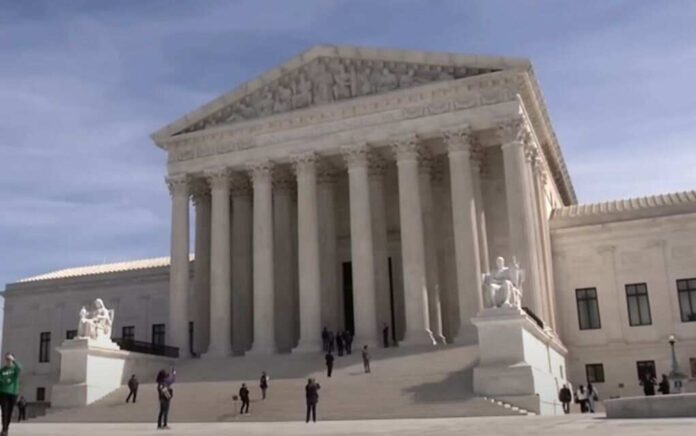
The issue of election integrity has been a major topic in the last few years. And now the U.S. Supreme Court has weighed in.
Because this massive Supreme Court ruling will change elections in America in the most insane way.
The debate of states rights vs the rights of the federal government goes back hundreds of years when America was just getting its start in the world.
Some individuals like Thomas Jefferson emphasized states rights being critical to maintaining a free state while others like Hamilton were more federally-minded.
But any one of our Founding Fathers would be stunned to see the way power has become consolidated by the federal government, particularly in the executive branch.
One issue that this debate has a major impact on is election integrity and how elections are conducted on a national level.
States want to know that they have the authority to protect elections that are conducted in their districts, even those for national offices like the U.S. Senate and the Oval Office.
But in a stunning 5-4 ruling from the U.S. Supreme Court has dealt a serious blow to the rights of states to conduct elections fairly how they see fit.
The 5-4 decision upheld a lower court’s ruling that the map violated the Voting Rights Act of 1965, a cornerstone of U.S. civil rights law, since it allegedly dilutes the voting power of Black Alabamians. The majority opinion was written by the court’s conservative chief justice, John Roberts, and was supported by the court’s three liberal justices and one conservative justice, Brett Kavanaugh.
In this example, the seven U.S. House districts in Alabama were drawn according to a map that had been authorized in 2021 by the Republican-controlled state legislature. The map had one predominantly Black district and six predominantly white ones.
At the time of the passage of the Voting Rights Act, many states in the South, including Alabama, had laws on the books that made it illegal for African Americans to cast ballots.
The Supreme Court was successfully pressured by conservative states and others to restrict the reach of the Voting Rights Act. In another decision involving Alabama, the court invalidated a crucial component in 2013 that had established which states with histories of racial discrimination need federal approval to change voting rules. The Supreme Court made it difficult to show violations under Section 2 in a 2021 judgment upholding Republican-backed Arizona voting restrictions.
In its decision released on Thursday, the Supreme Court addressed two consolidated cases in which Black voters and advocacy groups accused the state of breaking Section 2 of the Voting Rights Act, which prohibits discrimination based on race in voting practices even when no such intent is present.
Those who opposed the map argued that it diluted the strength of black voters by concentrating them in one district and diluting the remainder of the black population across other districts to a minority size.
In January 2022, a federal judge panel agreed with the challengers and blocked the Republican-drawn map for “substantially likely” violating Section 2.
The court also ordered the creation of an additional district where Black voters constitute “a voting-age majority or something quite close to it.” To further their case, Alabama took it to the Supreme Court.
Officials in Alabama maintained that creating a second district to increase the number of Black voters and increase the likelihood that their favorite candidate would be elected was itself racially discriminatory.
Alabama claims that the Voting Rights Act violates the 14th Amendment guarantee of equal treatment under the law if it requires the state to consider race in this way.
It’s concerning that Brett Kavanaugh found his way agreeing with the 3 other liberal Justices on the High Court bench on this issue. A traditionally conservative jurisprudence would absolutely acknowledge the validity of the state of Alabam’s claims that, if anything, they were trying to ensure that black citizens were represented.
It is possible that if they simply spread the black population evenly across districts, there wouldn’t be much black representation anyway because it would be totally diluted.
There’s also no reason that states should be forced to consider race when evaluating district lines for future elections. Justice should be blind to that and the districts should be drawn based on more pertinent information about local populations like age as well as local geography.
It’s unclear how much this ruling for Alabama will impact other conservative legislatures, but it’s definitely a concern that the power of elections are being consolidated by the federal government.
Stay tuned to the Federalist Wire.



















